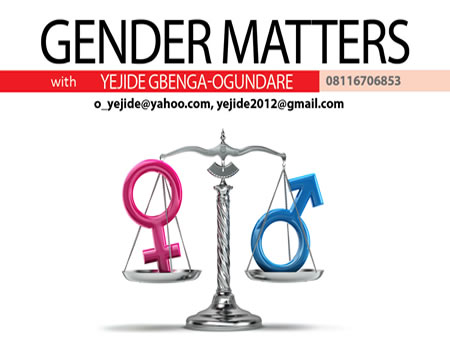Continued from last week
It has been established that there are diverse issues in tackling women empowerment in the typical African society, especially in Nigeria, including cultural stereotypes, religious beliefs and patriarchy.
These issues lead to victimisation of women, gender-restrictive structures, violation of women’s rights as well as repressive justice.
These prevent women from standing for themselves, having a voice, achieving self-actualisation and standing for their rights in decision-making.
For women empowerment to be a reality, structures in the family or governance must be placed in a way that allows women to take decisions that affect them and allows them to promote gender equality, parity, and social justice and enables them to contribute to sustainable national development.
The case is made worse by the fact that women often take the treatment as normal because of the way they were brought up and the expectations of society. Some even believe that women make it difficult to fight their cause because they have blinkers on their eyes and do not focus on important issues.
The two major issues that affect women empowerment are culture and religion. Women are hampered by these two fundamental issues which form a basis of the way things are done. The society thrives on ideologies that has its roots in culture and religion, especially Christianity, which teaches that the man is the head of the woman and consequently, she should be subservient to the man.
And while women are said to be participating more in politics, leadership and governance, what they are allowed to do is an extension of their gender roles. In an association, women automatically are given welfare secretary position rather than chairmanship. As state executives, their roles is usually around women affairs. This hinders development and creates glass ceilings that keep women on the same position forever.
Men abuse women, earn more salaries, retain top managerial positions in organizations and gag women because culture and religion say the man is the head of the woman. This psychology of patriarchy and male dominance continues to be a major hindrance in women empowerment.
In politics, there are culture-imposed benchmarks and systemic constraints that reinforce the system of women taking the back seat.
How then could this be resolved to allow women attain their potentials and also be financially independent to rid the society of its prevalent poverty which affects women more than men? The most potent tool is education; but there is a need to correct the erroneous belief that only women need education. Men also need enlightenment to know that giving women a voice does not erode their authority. It can only aid the growth of the society and eradicate poverty.
Education is an identified tool that is effective for the emancipation and empowerment of women because it can improve the status of women in any society by allowing them explore their skills, talents and initiatives to make a difference and create a balanced society where policies will work.
Education not only allows women to gain more knowledge about the world but helps them to get status, self-confidence and belief in individual capabilities as well as courage and inner strength needed to tackle the issues of living.
Educated women have what it takes to play an equal role as their male counterparts in governance, development nation building. But massive advocacy is yet to make this viable tool available to all women; the 2003 and 2005 UNESCO report indicates that literacy among women is only 54 per cent and Nigeria is still at the risk of not achieving the Education For All (EFA) goals.
There is still a large number of women who have no access to education and are more vulnerable to abuse, exploitation and poverty. That education empowers women is an indisputable fact, so government and policy makers need to make education for women an important issue while women should consciously develop their skills and assist themselves in the men dominated society.






